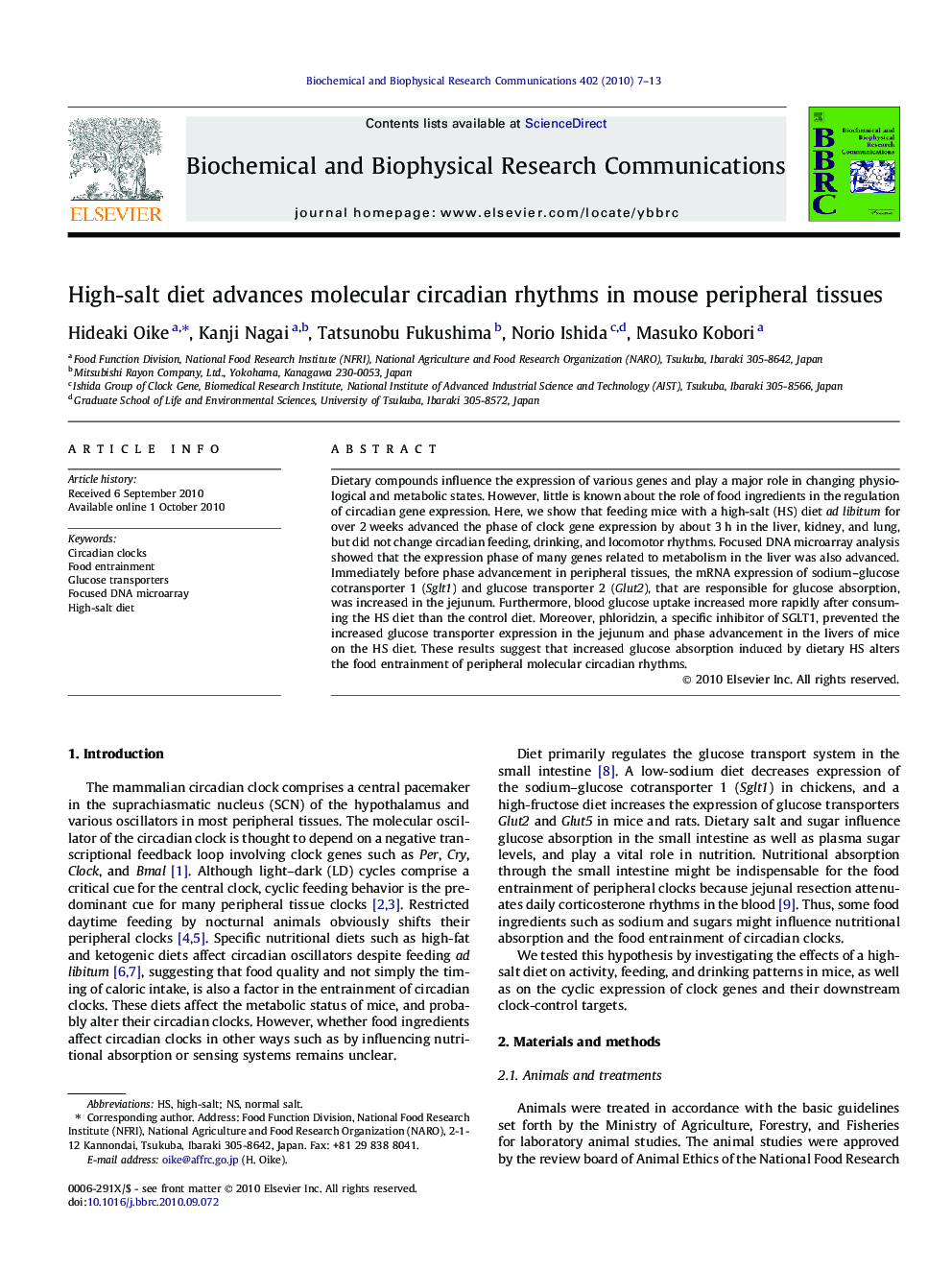| کد مقاله | کد نشریه | سال انتشار | مقاله انگلیسی | نسخه تمام متن |
|---|---|---|---|---|
| 1930979 | 1050536 | 2010 | 7 صفحه PDF | دانلود رایگان |

Dietary compounds influence the expression of various genes and play a major role in changing physiological and metabolic states. However, little is known about the role of food ingredients in the regulation of circadian gene expression. Here, we show that feeding mice with a high-salt (HS) diet ad libitum for over 2 weeks advanced the phase of clock gene expression by about 3 h in the liver, kidney, and lung, but did not change circadian feeding, drinking, and locomotor rhythms. Focused DNA microarray analysis showed that the expression phase of many genes related to metabolism in the liver was also advanced. Immediately before phase advancement in peripheral tissues, the mRNA expression of sodium–glucose cotransporter 1 (Sglt1) and glucose transporter 2 (Glut2), that are responsible for glucose absorption, was increased in the jejunum. Furthermore, blood glucose uptake increased more rapidly after consuming the HS diet than the control diet. Moreover, phloridzin, a specific inhibitor of SGLT1, prevented the increased glucose transporter expression in the jejunum and phase advancement in the livers of mice on the HS diet. These results suggest that increased glucose absorption induced by dietary HS alters the food entrainment of peripheral molecular circadian rhythms.
Research highlights
► Feeding mice ad libitum with a high-salt (HS) diet advances the expression phase of circadian clock genes in peripheral tissues by about 3 h.
► The expression phase of many metabolic-related genes in the liver is also advanced by intake of the HS diet.
► Dietary salt alters glucose transport in the mouse intestine, and this alteration affects clock entrainment by food.
Journal: Biochemical and Biophysical Research Communications - Volume 402, Issue 1, 5 November 2010, Pages 7–13